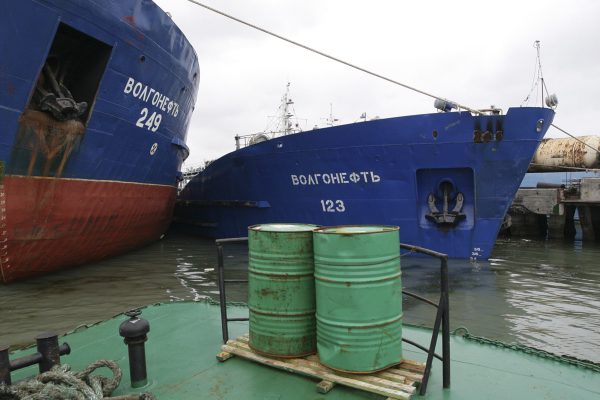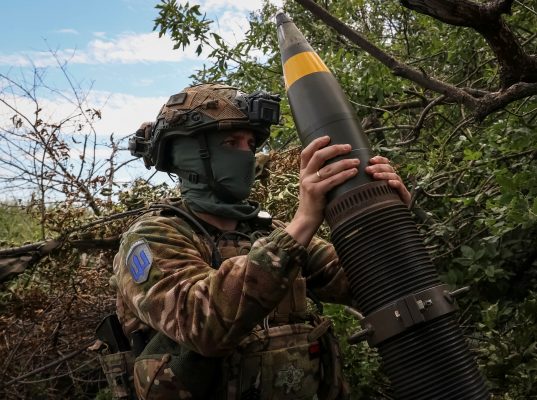On October 22, Giorgia Meloni, the leader of the nationalist party Brothers of Italy (Fratelli d’Italia—FdI), became the country’s first woman prime minister. A fierce discussion over the cabinet’s composition has highlighted the challenges that will test the new executive’s political agenda, both domestically and internationally. At the same time, it also confirmed the complexity of the Italian political landscape and why hasty, long-abused historical comparisons may not be the best way to understand it. There are five realities that observers of Italy should remember.
First, Meloni is a political outsider who leads a relatively new party. Founded only a decade ago, FdI is a right-of-center breakaway from Silvio Berlusconi’s People of Freedom party. In its tone, FdI has always been more nationalistic than its predecessors. Some of its members are also linked to the neo-fascist or post-fascist legacy of parties like the Italian Social Movement and the National Alliance.
Putting this lineage aside for a moment, it is important to remember that Meloni came to power as an anti-establishment candidate promising change. This is a familiar narrative in Western politics, particularly in Italy, where every election seems to revolve around pledges of change. This is one reason for the fluidity of parties. But for all the rhetoric, Meloni will need to govern with pragmatism, looking for practical reforms to Italy’s economy if she wishes to remain in power. As an outsider and someone who as yet has no record of delivering change, Meloni’s position is vulnerable.
Part of the vulnerability comes from the argument that Meloni has fascist links, but bear in mind that “fascism” is more a term of abuse than an accurate description of Meloni’s politics. Few words carry more negative weight in Western politics, but the most destructive and dangerous elements of fascism — one party rule, domestic political violence, militarism, and imperialism — are absent from Meloni’s platform, and she has consistently denounced anti-democratic far-right ideologies in recent years.
From a contemporary perspective, Meloni’s anti-immigration stance, her criticism of the secular Left and radical Islam as threats to Italy’s “roots,” her overt nationalism, and her opposition to LGBTQ+ values are cited as evidence of fascism. These issues remain priorities within the progressive Left and Meloni does not accept the left-of-center consensus on many of these social issues. But this does not make Meloni a fascist.
The complex relationships of the Meloni government with friends and partners raises a third issue. Italy’s new government remains firmly grounded in the West. Meloni emphasized this in her first speech to parliament. Its alliances, trade, partnerships, economy, and culture are thoroughly tied to NATO and Europe. The 2019 pro-China steps of Prime Minister Giuseppe Conte created a great deal of unease on both sides of the Atlantic, but under Prime Minister Mario Draghi, Italy stepped back from this position. The fragmentation of the Five-Star Movement and Draghi’s extensive use of golden share rules to prevent further Chinese inroads into Italy’s economy shows just how rapidly Italian-Chinese cooperation has cooled. Under Meloni’s government, the more skeptical China policy is likely to continue.
Even if Meloni wished it, Italy’s grounding in the West is a constraint to more radical policies in foreign affairs. But this does not preclude attempts at renegotiation of Italy’s place within Europe or the West more broadly. Members of FdI, for example, have called on Italy to renegotiate the nearly €200bn ($199bn) in loans and grants Italy received as part of the EU’s COVID recovery funds. In her inaugural speech, the new prime minister mentioned this possibility, referring to the adjustments that would be needed to balance higher energy bills and inflation, partly driven by the war in Ukraine.
The Italian economy has been hit hard — like almost every other economy — by these dynamics and Meloni and her allies could make the case that Italy is particularly vulnerable and needs extra financial support to stay the course. During the Draghi government, Rome moved fast to implement many of the 55 objectives set with Brussels as a condition for the next disbursement of EU recovery funds. The remaining objectives shouldn’t be too difficult to achieve, but the control and management of these funds by different ministries could nonetheless create friction within the governing majority.
Russia’s war against Ukraine is another potential source of division. Meloni has stated and restated her support for Ukraine, her opposition to Putin, and her belief that Italy should continue to impose sanctions like other European powers, even at the risk of disturbing the delicate balance within her coalition.
The leader of Italy’s largest opposition party Enrico Letta, has vehemently criticized Putin’s war, but there is support for the Russian leader within Meloni’s own coalition. The Lega leader, Matteo Salvini, and Silvio Berlusconi, now leading Forza Italia, have opposed sanctions and defended Putin’s actions. Berlusconi created an early headache for the government. Early this month on the occasion of his 89th birthday, he announced that he had received “a very lovely letter” and a crate of Russian vodka from Putin and responded with Lambrusco and “an equally sweet note.” In public, he has suggested that Putin invaded to replace the democratically elected government with “decent people.” The former premier has since downplayed his remarks. The tone and existence of these personalized politics, however, must be troubling for Meloni, who Berlusconi has apparently demeaned in private correspondence.
Nonetheless, the joint political program endorsed by all three main parties of the governing majority says clearly that Italy’s belonging to the EU, NATO, and the West is simply indisputable. And on October 28, the prime minister spoke to President Zelenskyy and pledged new aid to Ukraine.
The new government also boasts experienced and firmly pro-Western figures in key ministries and roles. In particular, the current Ambassador to NATO, Francesco Talò, becomes Diplomatic and National Security Advisor to the Prime Minister, the former president of the EU Parliament Antonio Tajani is the new Minister of Foreign Affairs and Adolfo Urso — who is known for his tough positions on China’s economic penetration — is Minister for Economic Development. Guido Crosetto, who has gained vast experience by leading Italy’s defense industry association (AIAD) for eight years, is in charge of the defense portfolio.
Still, profound divisions within Italian politics and within the governing coalition are a reality and lead to the fifth and final point. The government’s hold on power — like many Italian cabinets before it — is contingent on its ability to deliver results on numerous (mostly domestic) issues. For all the praise and criticism Meloni’s electoral victory has elicited, for all the anxiety and hand-wringing, joy within Europe’s far-right or purported relief for Putin, the fraught dynamics of Italian politics are tough to ignore. First and foremost, it has to survive.
Meloni’s government faces a divided electorate, a divided parliament, and internal divergences on numerous national policy priorities. Chief amongst these is the 2023 budget and the future of public support schemes where FdI finds itself potentially at odds with its coalition partners. Meloni and her party are more inclined to take a more fiscally cautious conservative approach, while her partners are traditionally oriented to more expansive, populist economics. Migration policies could also represent an area where, despite the ideological similarities among the governing parties, different approaches may unfold.
These divergent opinions may prove a tough obstacle to overcome, but Giorgia Meloni’s approach and reassuring government line-up seem, for now, to distance the threat of discontinuity and that of yet another short-lived cabinet.
Andrew R. Novo is a Non-resident Senior Fellow with CEPA’s Transatlantic Defense and Security program, a Professor of Strategic Studies at the National Defense University, Washington, DC and an adjunct at Georgetown University’s School of Foreign Service. Views expressed are his own and do not reflect the views of the United States Government, the Department of Defense, or the National Defense University.
Federico Borsari is Leonardo Fellow with the Transatlantic Defense and Security Program at the Center for European Policy Analysis (CEPA). The main focus of his work is transatlantic defense and security dynamics, with a focus on unmanned technologies and their military implications in Europe and the broader Mediterranean. He is also NATO 2030 Global Fellow and a Visiting Fellow at the European Council on Foreign Relations (ECFR).
Europe’s Edge is CEPA’s online journal covering critical topics on the foreign policy docket across Europe and North America. All opinions are those of the author and do not necessarily represent the position or views of the institutions they represent or the Center for European Policy Analysis.





